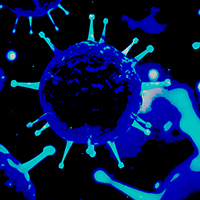Management of COVID-19: the risks associated with treatment are clear, but the benefits remain uncertain

Submitted: April 26, 2020
Accepted: May 4, 2020
Published: May 5, 2020
Accepted: May 4, 2020
Abstract Views: 1491
PDF: 834
Publisher's note
All claims expressed in this article are solely those of the authors and do not necessarily represent those of their affiliated organizations, or those of the publisher, the editors and the reviewers. Any product that may be evaluated in this article or claim that may be made by its manufacturer is not guaranteed or endorsed by the publisher.
All claims expressed in this article are solely those of the authors and do not necessarily represent those of their affiliated organizations, or those of the publisher, the editors and the reviewers. Any product that may be evaluated in this article or claim that may be made by its manufacturer is not guaranteed or endorsed by the publisher.
Similar Articles
- Valeriu Plesca, Ana Ciobanu, Yuliia Sereda, Andrei Dadu, Do catastrophic costs impact treatment outcomes in people with rifampicin-resistant tuberculosis in the Republic of Moldova? , Monaldi Archives for Chest Disease: Vol. 91 No. 1 (2021)
- Francesco Natale, Riccardo Molinari, Simona Covino, Roberta Alfieri, Mirella Limatola, Lorenzo De Luca, Enrica Pezzullo, Andrea Izzo, Giovanni Cimmino, A pitfall in the echographic diagnosis of abdominal aortic aneurysm: when para-aortic lymph nodes are the trick , Monaldi Archives for Chest Disease: Vol. 94 No. 1 (2024)
You may also start an advanced similarity search for this article.

 https://doi.org/10.4081/monaldi.2020.1342
https://doi.org/10.4081/monaldi.2020.1342




